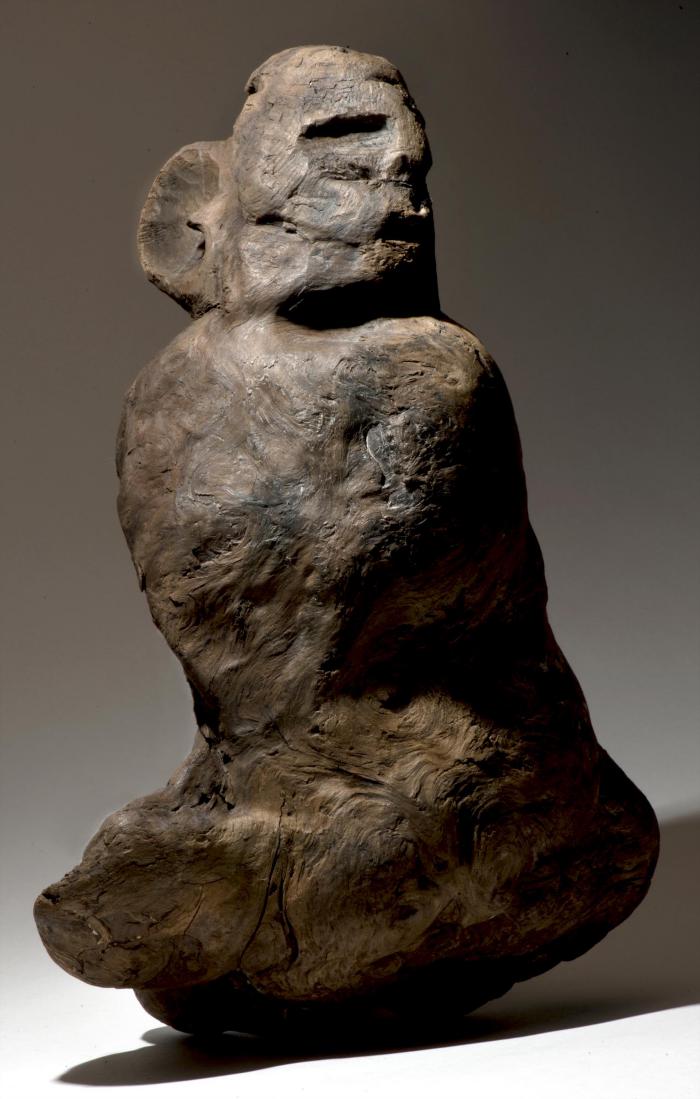Ear — Cuuteq

In classical Alutiiq society, people decorated their ears. Historic paintings and ancient drawings show both men and women wearing numerous strands of beads from their earlobes and the cartilage around the outer ears. Such jewelry helped to demonstrate a person’s identity—their family connections, age, and social status. Decorating the ears may also have signaled the importance of listening.
The senses provide a critical connection between Alutiiq people and the universe. Sight, sound, smell, taste, and touch help people navigate both the human and no-human worlds. Hearing is particularly important, as sounds can be both helpful and dangerous. For example, harvesters must be quiet and listen carefully to find prey. The snap of a twig, a splash, or a puff of air can reveal the presence of an animal. Conversely, talking too much and making loud noises may scare prey, awaken spirits, and bring bad luck. In the Alutiiq world, whistling calls the spirits.
Alutiiq legends illustrate the connection between sound and spirits. In one tale, men improve their hunting luck by hearing spirits. A pair of kayakers trapped in the fog hear voices and find a tiny boat with little men. They help the little men, the fog lifts, and they hunt successfully. In another legend, however, noise creates hardship. The Man of Winter, a spirit, hears loud children and brings bad weather. A wooden figure from Karluk may be this listening spirit. The carving features a face with one very large ear.
The Alutiiq language also captures the importance of listening. An Alutiiq word for disobedient—cuutailnguq—literally means to have no ears.
